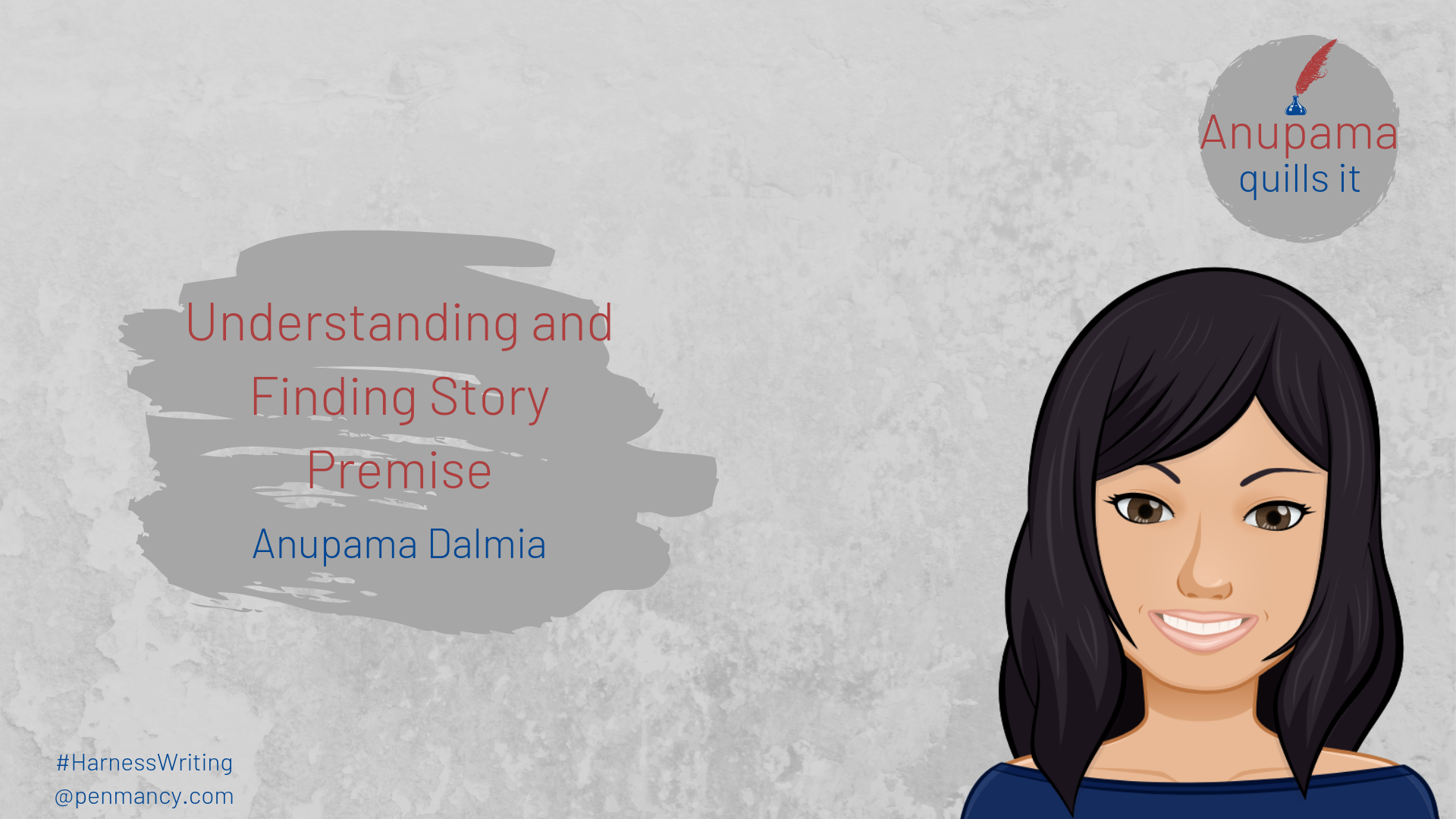
“I don’t know what to write about.” “I have a faint idea in my head but I don’t know how to begin writing.” “I can’t think of any idea to convey my message through a story.” I am sure the above statements sound familiar to a majority of writers. Most of us face these struggles during our writing escapades. Finding and establishing my story premise is a decisive and crucial step in my writing process. This lays the foundation for the story and characters to develop and acts as a driving force while penning the tale. Technically, a story premise constitutes merely 3-4 sentences, and hence may appear to be inconsequential in the larger scheme of things. However, it is the premise that gives an idea a form, direction and meaning. A story premise, when appropriately envisaged, conveys the story in a few lines and is the stepping stone in the story writing roadmap. It should not be confused with the story plot. The plot is “what happens” in the story – the events and occurrences which lead to the goal that comes from the premise which is set before we get to the plot. The story premise generally includes the protagonist/key characters, the conflict/predicament/crisis they would face or experience and the purpose that this would serve in their life. It is about “who”, “how” and “why”. Now, this is not necessarily something to be done by the book but is a basic framework to work around with for constructing a concrete premise. While we have established how a story premise is defined, finding a convincing one can be a challenge to begin with. Following points help me to unearth a compelling and intriguing premise to connect to my readers: Keeping my eyes and ears open to my milieu – If we pay attention to the world around us, we would discover that there are umpteen stories waiting to be told and at times, re-told. The best way to find a story premise is by being observant and perceptive to our surroundings and environment. Almost all my stories are somewhere drawn from real life events and people. A popular myth is that we can find fodder to build an interesting story premise only for realistic fiction genre from our daily lives. In fact, the core of every story in any genre has elements of life on this earth. Inspiration can strike any time and when it does, we get the answers to our questions - “Who”, “How” and “Why”. Deep thinking and inquisitiveness – Keen perception, however, may not be enough if one is not curious. As a writer, asking even the most random questions helps to bring something creative and solid out of my inquisitiveness. Once it had so happened that a friend was extremely distraught as she was being body shamed post delivery. She shared her ordeal with me and expressed how she was the target of her husband’s frequent jibes. I asked myself – “What would happen if one day she would retort and give him a taste of his own medicine?” Consequently, the seed of one of my largely popular short stories published online was planted in my head. I just knew then who would be my character, what would be her conflict and most importantly, what would be the outcome of her journey within my story. Defining a purpose for my character – Sometimes, my characters help me to put together the premise of my story. When we want a character to achieve a certain kind of evolution or give the character a purpose, it leads us and we just need to follow. I clearly recall how this had worked wonderfully for one of my stories on emotional abuse in a marriage. I knew the end – the character would walk out from her marriage on her 10th anniversary. This had been lingering in my mind for a while and eventually, the story premise got carved out to my satisfaction in an organic manner as I chalked out her transformation journey. Research on topics of interest – If nothing else works, read and research! Every writer is fascinated by specific subjects and may be interested in exploring their areas of interest in their creative pieces. In such cases, it is worthwhile to spend time to delve into the information that they have at their disposal. Awareness and insights often trigger ideas and provide clarity. This approach is particularly useful while spinning tales based on real phenomenon or in genres like historical fiction or science fiction. I strongly believe that more often than not, when we are finding our story premise, it is actually finding us. Our story chooses us to be told from our pen. All we need to do is be alert and receptive to its cues and calls. ________ ________
